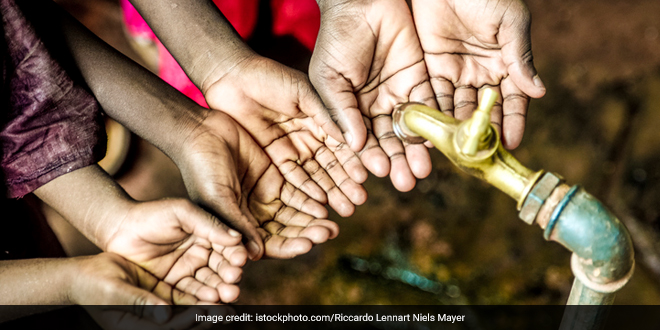New Delhi: Union Minister for Finance and Corporate Affairs, Nirmala Sitharaman tabled the Economic Survey 2020-21 in the Parliament today. The Ministry of Finance’s annual report on the country’s economic health, highlighted the Swachh Bharat Abhiyan’s performance over the years and noted that because of initiatives like Swachh Bharat and Jal Jeevan Mission, the progress made in “access to bare necessities” have improved in India. The Economic Survey also reiterated the established link between sanitation and economic performance and how good sanitation can boost the economy, as has been seen across developed countries in the world.
Here are the key highlights of Economic Survey 2020-21 on sanitation:
- Access To Safe Drinking Water: According to the survey access to drinking water to households in most of the states has improved in 2018 compared to 2012 in rural as well as urban areas. States such as Sikkim, Punjab, Haryana and Gujarat are at the top while Odisha, Jharkhand and Andhra Pradesh are at the bottom OF the drinking water accessibility index.
- Safe Sanitation Practices: The survey also shows that the sanitation access has improved for all states in rural areas and for most of the states in urban areas in 2018 compared to 2012. It also notes that regional disparity in access to sanitation has declined as the states having low access to sanitation in 2012 have gained more access. Similarly, the level of access to safe sanitation has also seen an increase.
- Swachh Bharat Mission Achievements: Highlighting the targets and achievements of the government’S flagship programme the Swachh Bharat Abhiyan, the survey noted that under SBM, rural sanitation coverage has made an incredible leap with more than 10 crore toilets built across rural India. Whereas, in urban areas, 4,327 Urban Local Bodies (ULBs) have been declared open defecation free so far with the construction of more than 66 lakhs individual household toilets and over 6 lakhs community/ public toilets.
- Way Ahead For Swachh Bharat 2.0: In a bid to sustain the gains made under the programme in the last five years and to ensure that no one is left behind and to achieve the overall cleanliness in villages, the survey said that the SBM phase II from 2020-21 to 2024-25 is being implemented with a focus on ODF (Open Defecation Free) sustainability and Solid & Liquid Waste Management (SLWM) through convergence between different verticals of financing and various Schemes of Central and State Governments such as 15th Finance Commission grants to local bodies, MGNREGA (Mahatma Gandhi National Rural Employment), Corporate Social Responsibility (CSR) funds etc. According to the survey, the Mission is now focusing on holistic sanitation through its ODF+ and ODF++ protocols with a total of 1,319 cities certified ODF+ and 489 cities certified ODF++ as OF NOW.Whereas, in the solid waste management front, the survey noted that 100 per cent of wards in India have complete door-to door collection. Further, out of 1,40,588 Tonnes Per Day (TPD) waste generated per day, 68 per cent (i.e., 95,676 TPD) is currently being processed.
- Access To Bare Necessities Linked To Improvements In Health Indicators: The survey noted that because of the improved access to the ‘bare necessities’ in the country, improvements in health indicators such as infant mortality and under-5 mortality rate have been seen.
NDTV – Dettol Banega Swasth India campaign is an extension of the five-year-old Banega Swachh India initiative helmed by Campaign Ambassador Amitabh Bachchan. It aims to spread awareness about critical health issues facing the country. In wake of the current COVID-19 pandemic, the need for WASH (Water, Sanitation and Hygiene) is reaffirmed as handwashing is one of the ways to prevent Coronavirus infection and other diseases. The campaign highlights the importance of nutrition and healthcare for women and children to prevent maternal and child mortality, fight malnutrition, stunting, wasting, anaemia and disease prevention through vaccines. Importance of programmes like Public Distribution System (PDS), Mid-day Meal Scheme, POSHAN Abhiyan and the role of Aganwadis and ASHA workers are also covered. Only a Swachh or clean India where toilets are used and open defecation free (ODF) status achieved as part of the Swachh Bharat Abhiyan launched by Prime Minister Narendra Modi in 2014, can eradicate diseases like diahorrea and become a Swasth or healthy India. The campaign will continue to cover issues like air pollution, waste management, plastic ban, manual scavenging and sanitation workers and menstrual hygiene.
[corona_data_new]





























